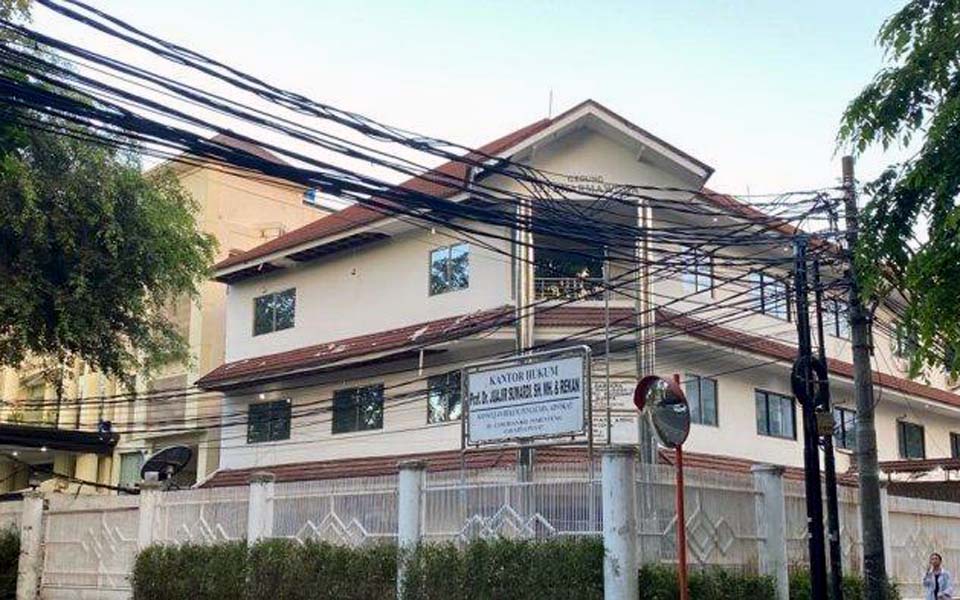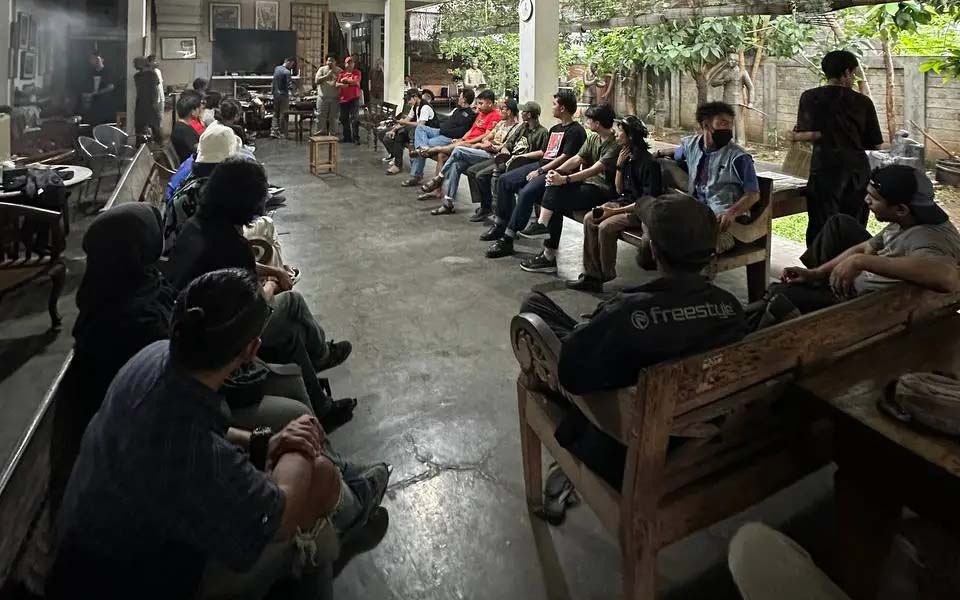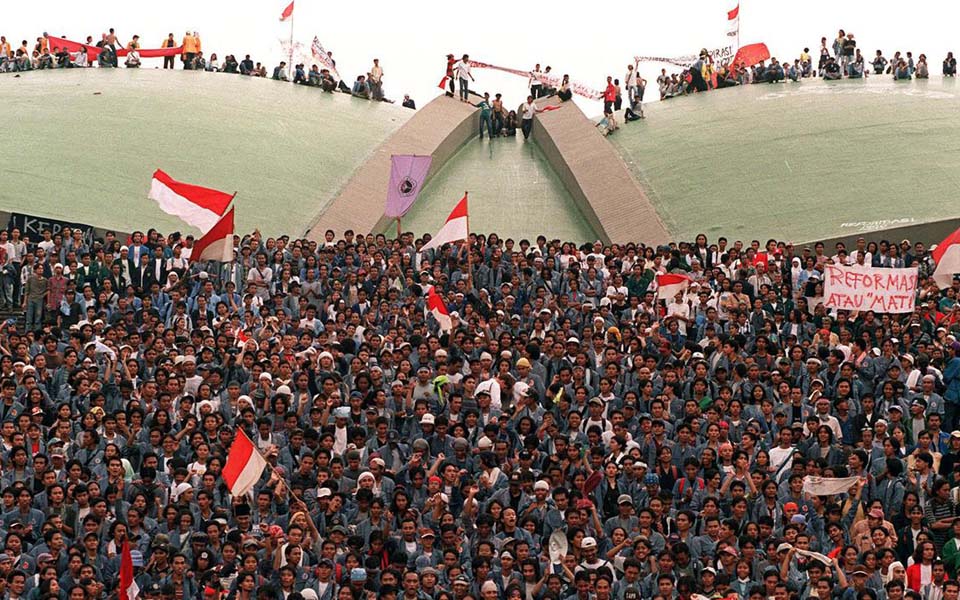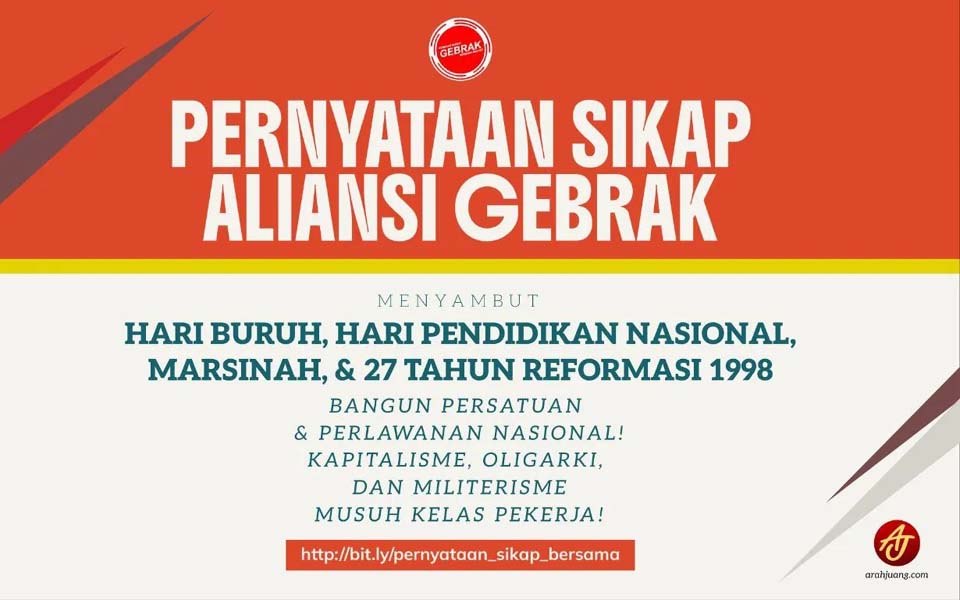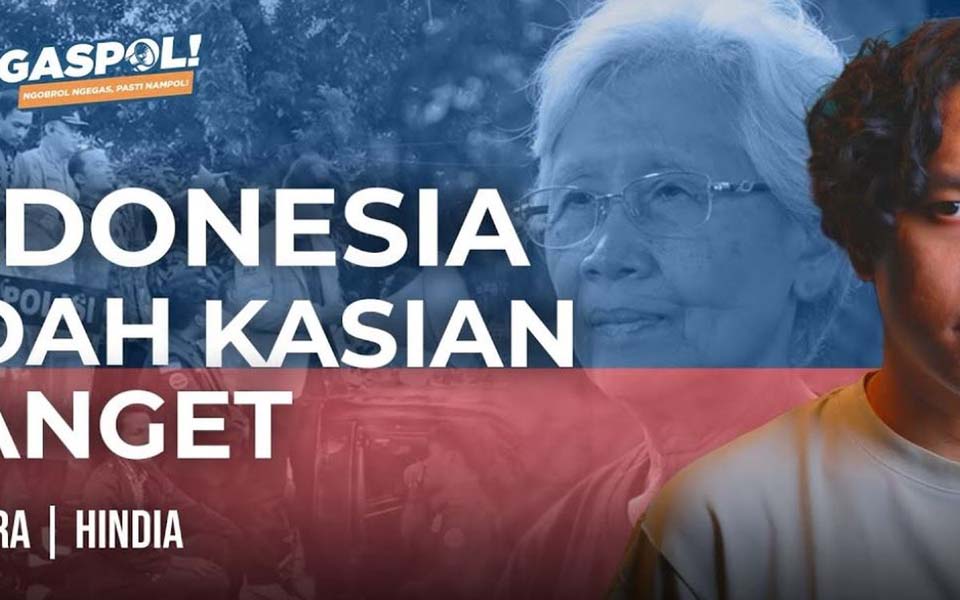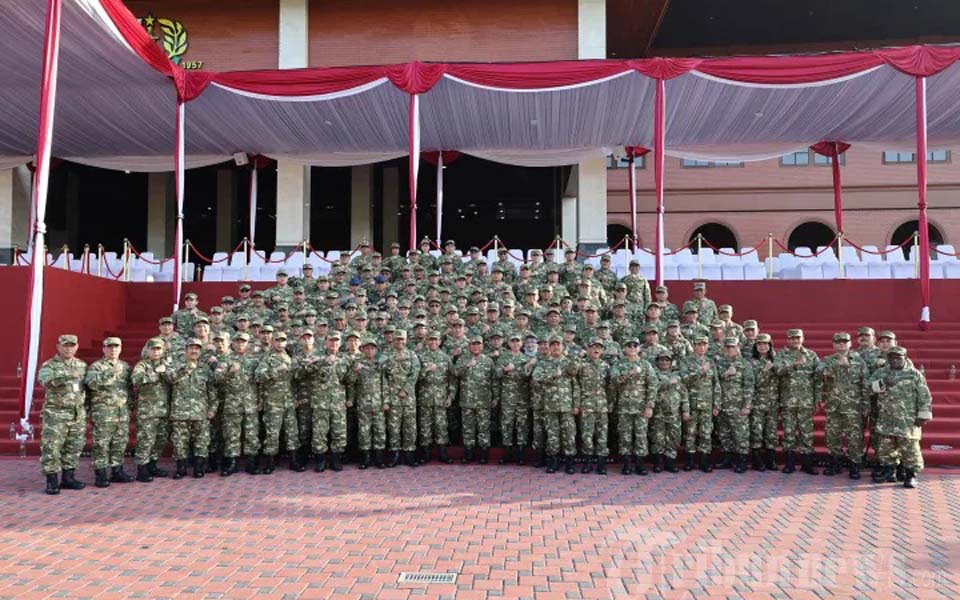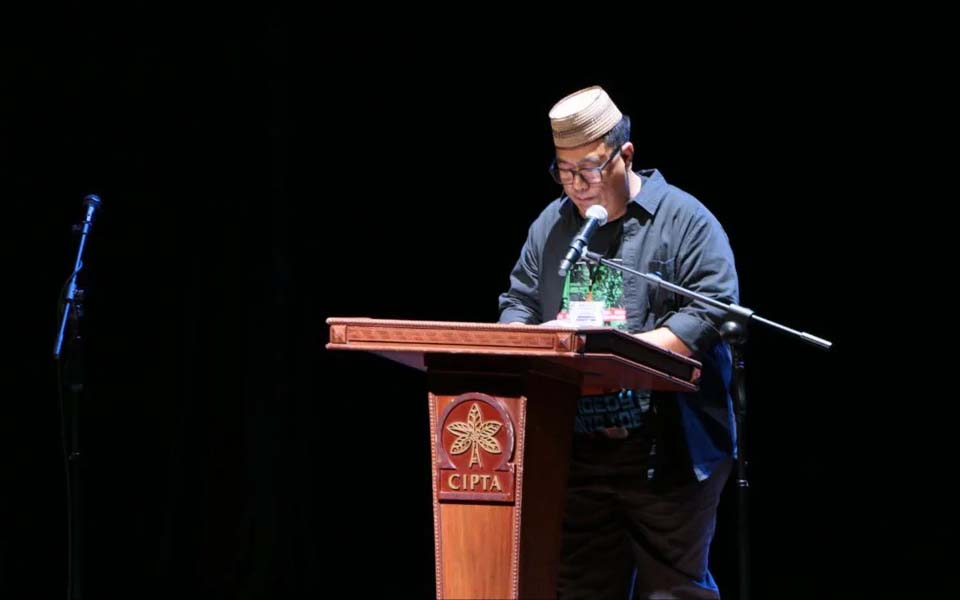Indonesia has a long history of struggle by the oppressed people against colonialism, feudalism, militarism and capitalism. In this struggle, left-wing ideas played a central role as one of the main currents in shaping political awareness, the strategies of struggle and the direction of national development.
These historical traces however have been buried deeply through the systematic eradication of leftist literacy, especially since the events of 1965 and the consolidation of the New Order regime. Since the military coup that gave birth to the New Order regime in 1965-66, Indonesia has entered a dark chapter in its intellectual and cultural history.
Under former president Suharto's leadership, the state systematically destroyed all forms of expression that were considered "populist", "leftist", "communist" or smacked of "Marxism-Leninism". It was not just the murder of hundreds of thousands of people who were considered to be Indonesian Communist Party (PKI) members and supporters, but the total cleansing of the left's intellectual heritage – from books and magazines to publishing and discussion activities.
Leftist literacy that once flourished in the era of Indonesia's founding and leftist president Sukarno, with figures such as Pramoedya Ananta Toer, DN Aidit or even institutions such as the People's Cultural Institute (Lekra), were completely eradicated. The debate about the development of the Lekra and other groups, and even figures who tried to push away leftist traditions in Indonesian arts were also discussed by Keith Foulcher in his book titled Social Commitment in Art and Literature: The History of Lekra 1950-1965. Books by Marx, Engels and Lenin were eradicated and analytical writings on socialism and class struggle were banned and criminalised. Many books were burned, libraries closed and anyone caught keeping or reading such reading materials could be accused of subversion.
This process gave birth to a generation that was disconnected from the critical intellectual history of its own nation. The New Order effectively shaped a knowledge whose landscape was dominated by a monolithic anti-communist narrative, while all forms of alternative thought were eliminated from the public sphere.
Even after the fall of the New Order in 1998, traces of repression against leftist literacy still persists. The destruction of leftist ideas or even leftist traditions through the media or literature related to it became a dominant endeavour of the New Order government, as described by Wijaya Herlambang (2011) in a book entitled Post-1965 Cultural Violence: How the New Order Legitimised Anti-Communism Through Literature and Film. Although the tap of freedom was opened wider after 1998, the stigma against Marxism and socialism remains alive. Law Number 27/1999 which revised the Criminal Code (KUHP) articles on subversion for example still criminalises the spread of communist, Marxist and Leninist teachings, thus becoming a formal barrier to the rehabilitation of leftist literature. Cases of book discussions being disbanded, films with a 1965 theme being banned and the persecution of literacy communities show that old wounds have not healed.
The ongoing situation indicates that the project of depoliticising the people that began since the New Order has not completely ended. In this context, efforts to revive left literacy through its documentation are not merely an academic endeavour, but political steps to reclaim the people's rights to their own history and thoughts.
Efforts to erase traces of leftist traditions that encompass its culture and organisations have resurfaced following a statement by Minister of Culture Fadli Zon that the government is working on a project to rewrite Indonesian history. Zon said that the project will be completed in August to coincide with the commemoration of the 80th Anniversary of the Republic of Indonesia on August 17, 2025.
As reported via tempodotco (published via Instagram on June 4, 2025), there are various events that will be changed in the rewriting of Indonesia's history – one of which is the addition of the name PKI in the events of the September 30 Movement (G30S) in 1965. It is explicitly written in the government's version of the Indonesian history manuscript that the PKI was involved in this historical event. This has given rise to debate among historians or even left-wing movements that still survive today. This was reinforced by a statement by history and museums director Agus Mulyana from the Ministry of Culture who responded to the issue of criticism from various social groups regarding the history rewrite project. As reported by Tempo.co (published via the website on May 27, 2025), he stated that those who reject and criticise the history rewrite project are radical and heretical groups.
This is also represents a structured effort by the state to distort the historical facts that actually happened. This situation creates a vacuum in the tradition of critical thinking. Young Indonesians, who were born after the New Order, grew up inheriting an anti-communist atmosphere without adequate knowledge. This can also be seen as an effort to erase the complexity of events that occurred in the development of Indonesian society. History is an arena for the battle of interpretations between power and the people. In this case, the rewriting of history by the state is a form of ideological domination to kill class consciousness and obscure traces of resistance.
We see that the left movements in Indonesia have a long history and played a significant role in the development of the nation, the struggle for the liberation of the working class and the people of Indonesia and at an international level. The ruling class and the political elite have repeatedly tried to destroy, cover up or manipulate this role. In addition to the PKI, which as a left-wing organisation grew to be huge in Indonesia, there were other organisations such as SOBSI (All Indonesian Central Labour Organisation), BTI (Indonesian Peasants Front), Gerwani (Indonesian Women's Movement), the FDR (People's Democratic Front), Akoma (Young Communist Force) and the Murba Party.
In the 1980s, especially among students, a new left movement developed. Starting from various discussion groups, the student movement took a "circular" strategy, carrying out advocacy actions on peoples' cases. The student movement tried to make the majority of students who were traumatised and depoliticised aware by showing them the realities that existed in society, that oppression, human rights violations and arbitrariness were being carried out by the authorities. This process culminated in the establishment of the People's Democratic Party (PRD). The PRD became one of the important milestones in the history of the left movement in Indonesia and in the overthrow of Suharto. Outside of that, there were various other left movements with various tendencies that are also valuable to study.
At the 5th Congress of the Socialist Union (Perserikatan Sosialis), it was decided to establish the Indonesian Socialist History Institute (LSSI). The LSSI was established to explore the history of the left movements in Indonesia, as well as to save many critical discourses and important theories that were born from both the absorption of the international revolutionary movements and the growth of its own grassroots struggle. In this way, there will be materials available that can provide valuable lessons for the left movement, workers and the ordinary Indonesian people today.
The LSSI collects documents, both official and unofficial: 1) Official documents in the form of newspapers, organisational journals, statutes/rules of association, the results of organisational congresses or conferences, meeting results, bulletins and various other documents related to the formal activities of organisations. 2) Unofficial documents in the form of newspaper clippings, magazines, audio-visual documentation, photo documentation or books and various sources related to the struggle of left-wing organisations in Indonesia.
The LSSI is committed to preserving a historical heritage of the Indonesian left movements so that they are not forgotten. In addition to documenting, the LSSI also encourages a deeper understanding of the dynamics of the struggle of the left movements in Indonesia which can help provide a learning space for the left movements in Indonesia today.
– Indonesian Socialist History Institute
[Translated by James Balowski. The original title of the article was "Jejak Gerakan Kiri, Pelajaran untuk Perjuangan Kini: Memperkenalkan Lembaga Sejarah Sosialis Indonesia (LSSI)".]





